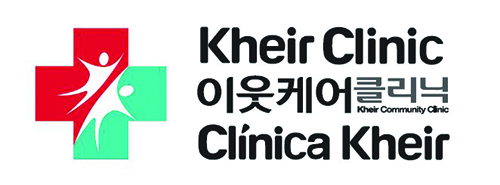KHEIR CLINIC
Kheir Clinic is a Federally Qualified Health Center (FQHC) serving the uniquely multicultural Koreatown neighborhood with unparalleled linguistic and cultural competence. Kheir was established in 1986 to serve as a bridge between recently immigrated Koreans and social service providers. Today, Kheir is the only FQHC in the nation that provides a full suite of healthcare and human services in English, Korean, Spanish, Bengali and Thai. The clinic is projected to serve more than 16,000 patients through more than 80,000 visits in 2020. Kheir provides comprehensive, in-language high-quality primary care, dentistry, optometry, behavioral healthcare, prenatal services, transportation, and healthcare enrollment assistance. The clinic also offers selected specialty care services in-house, including gastroenterology, physical therapy, podiatry, neurology, and dermatology.
Kheir also has innovative, culturally-specific programs to address health disparities in the Koreatown community. Kheir has the country’s longest-running Korean-language cancer support group (more than 20 years old), and offers Spanish and Korean-language diabetes support groups. Kheir’s Korean-language Caregiver Training Program helps patients learn how to care for elders and disabled family members, and/or gain skills for a career in hospice care. To address high rates of colon cancer among Kheir’s population, the clinic launched a special Board-funded colonoscopy project for undocumented patients in February 2020. While the project is currently paused due to the pandemic, the funds will ultimately subsidize free colonoscopies at a state-of-the-art gastroenterology center in Koreatown for 110 uninsured immigrant patients, promoting cancer survival through early detection. Most recently, Kheir has been on the frontlines of the COVID-19 response in Koreatown, providing coronavirus testing, information, and essential services to keep patients out of hospitals and Emergency Rooms. Kheir has collaborated with local partners to provide 7,124 hot meals, 150 grocery boxes, 3,200 cloth masks and 2,400 hand sanitizers to low-income patients, seniors and the homeless.

